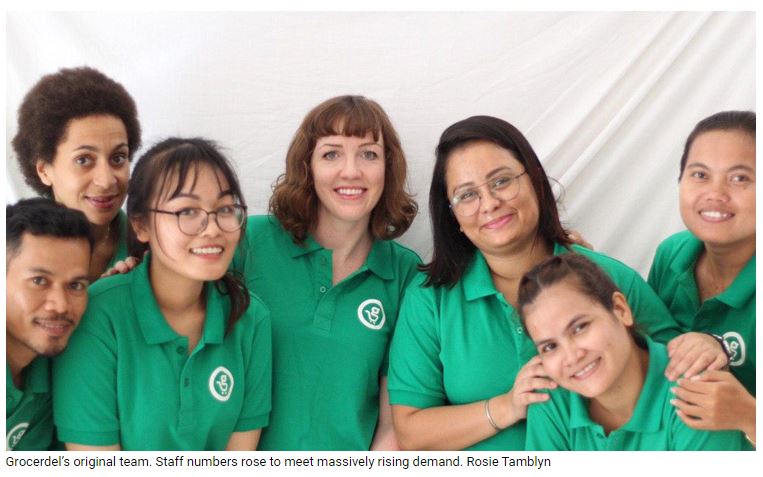Cambodia: ‘Virus will delay digitalisation’
Economic recovery after the COVID-19 pandemic will require greater efforts to foster the uptake of e-commerce and digital solutions all over the country, said Shamika N. Sirimanne, the United Nations Conference on Trade and Development (UNCTAD) director of technology and logistics.
She added that it’s necessary to improve information communication technology (ICT) connectivity in rural areas and build digital skills across local communities. UNCTAD said moves toward it are propelling the country to greater heights in the digital economy.
UNCTAD said in April, scores of Cambodian startups showcased digital solutions to challenges brought by the COVID-19 crisis in a “hackathon” dubbed HaCKtheCrisis, organised by entrepreneur mentors Impact Hub Phnom Penh.
The private sectors have rolled out various initiatives to improve the business environment, such as the Ngeay Ngeay (Easy Easy) platform, which offers information needed to register a business in Cambodia.
Also another digital marketplace, Meal Temple, a food and grocery delivery service that has flourished in Cambodia and expanded into Laos, Myanmar, Bhutan and Nepal, has also seen a jump in orders because of the pandemic. Development partners are helping to fuel the growth of e-commerce in Cambodia.
Startups like hers are expanding Cambodia’s budding e-commerce sector, helping blunt the impact of the pandemic on the country’s economy, according to UNCTAD. “E-commerce is still in its early stages in Cambodia, but massive growth is expected in the next year as businesses are forced to rapidly digitalisee during this global crisis,” UNCTAD said.
According to UNCTAD, the Cambodian government has stepped up efforts to strengthen the country’s e-commerce ecosystem in line with recommendations of an UNCTAD e-Trade Readiness Assessment policy. For instance, it’s finalising an e-commerce strategy with the support of the Enhanced Integrated Framework (EIF), involving various key ministries.
“Cambodia’s e-commerce sector has experienced rapid growth within the past decade. Internet access, affordability and uptake have ramped up significantly,” Pan Sorasak, Cambodia’s minister of commerce, told UNCTAD.
He said the upswing in online shopping will bolster the sector further. He added that the consumer base is becoming increasingly sophisticated in terms of absorbing social media, local content and smartphone-based value-added services.
Early this week, Cambodian government officially launched an online business registration system for all business people and investors. Registering on an information
technology platform will make the process less time-consuming, costly and complex than the analogue system, according to Deputy Prime Minister and Minister of Economy and Finance Aun Pornmonirath.
Pornmonirath said that the new business registration system allows investors to register their business at the Ministry of Commerce, tax registration at the General Department of Taxation and enterprise declaration at the Ministry of Labour and Vocational Training at the same time. It will take at most eight working days with more than a 50 percent reduction in all registration fees.
He said that it will provide an efficient and cost-effective registration process because it is a primary objective of the government to facilitate and minimise the challenges that investors face and encourage new businesses to register formally to become legal entities.
The process of registering, submitting reference documents, as well as obtaining certificates of incorporation, tax registration certificates, patents, as well as all other documents in electronic formats will be fully online and require no use of hard copies.
Business is booming for Cambodian online startups, such as grocery store Grocerdel.com, which delivers fresh farm produce and locally made products in the capital Phnom Penh.
Grocerdel’s CEO Priyanka Chetry, told Khmer Times that since COVID-19 struck, it has seen orders skyrocket by more than 180 percent as people have resorted to shopping online and limited their movements to contain the spread of the virus.
Grocerdel’s sales have shot up nearly 165 percent, forcing the startup to increase its staff by 50 percent to cope with the spike in demand.
“We believe this indicates the scare is over and we will return to steady growth,” she added.
“At present, Grocerdel’s new team has settled in and we are focused on increasing the quality of our service by adding new products and expanding delivery windows. Our local fresh-goods farmers have been largely unaffected by the virus.”
Source: https://www.khmertimeskh.com/50735608/virus-will-delay-digitalisation/


 Thailand
Thailand




